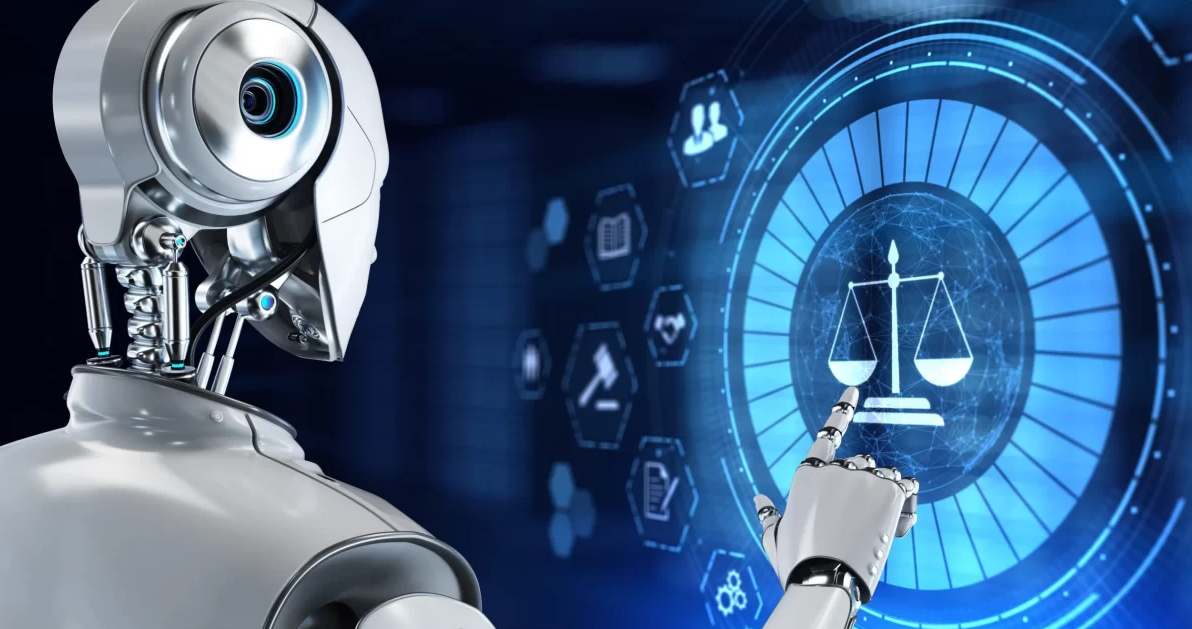The use of artificial intelligence is quickly expanding in the legal arena, but what are the implications of “robot” attorneys and plaintiffs and judges using ChatGPT?
On a recent visit to Mexico, I spoke with a 20-something Mexican crypto enthusiast who says he has used OpenAI’s ChatGPT to write legal briefs, some of which Mexican attorneys have used in court. At the moment, there are no rules or regulations against such an action, but Mexico is one of the dozens of nations that recently announced intentions to regulate artificial intelligence in some capacity.
“The thing (ChatGPT) is an expert in any legal code available on the internet, and can easily process what laws, jurisprudence, treaties, mandates, etc have to be considered,” Roy, the 20-something Mexican man told me. He says ChatGPT not only considers the various legal precedents that must be considered but also develops a legal strategy based on those precedents.
Roy also says that once you learn how to prompt ChatGPT “more efficiently,” a user can “produce several models of briefs for a specific case “and then sort out what you don’t need.
Asked if he believes any judge or attorney could detect the presence of AI-assisted legal briefs, he seemed more interested in talking about the quality of the work of ChatGPT.
“Perhaps, it’s too early to say if courts can notice a difference, but one thing is for sure: it does the work faster, with much higher quality at a very low cost,“ Roy said.
While Mexico’s younger generations explore AI tools like ChatGPT, the nation has begun to talk about regulating the use of AI in the private sector and within the government. In April, Deputy Ignacio Loyola Vera proposed passing the “Law for the Ethical Regulation of Artificial Intelligence and Robotics.” Loyola has argued that AI needs to be regulated immediately and that waiting until AI is everywhere “will be too late.”
In May 2022, Mexico’s INAI (National Institute for Transparency, Access to Information and Personal Data Protection) released AI recommendations on the “appropriate and ethical use of personal information through” various AI applications and “compliance with the obligations of the duty of security of personal data.” It touches on topics including AI in education, the public and private sectors, and cloud computing.
 How to Opt-Out of the Technocratic State: 2nd Edition
How to Opt-Out of the Technocratic State: 2nd Edition
However, the proposed law and the INAI’s recommendations do not specifically address how AI and the law may interact in the near future, not to mention in the present moment. I recently reported on the US government’s latest effort to regulate AI via Biden’s far-reaching executive order. The EO says it is about protecting Americans’ privacy and safety from AI-related threats, but it does not specifically mention any examples relating to AI drafting legal briefs for use in courts of law.
A so-called robot attorney, or AI lawyer, has made headlines periodically since 2015 when the service, known as DoNotPay, became known for being the world’s first AI lawyer. DoNotPay promised to help London residents appeal parking tickets. The service has reportedly been successful in more than half of its cases: more than $4 million in parking fines have been overturned.
It seems inevitable that AI will be involved in some capacity in the legal process. Whether it involves humans using ChatGPT to write legal briefs or AI lawyers replacing humans altogether, we are likely to see more examples that blur the line between human and AI interaction.
In May 2019, Wired reported that AI was being used as a “judge” to settle small claims in certain Estonian courts. However, in 2022, the Estonian government released a statement calling the article misleading. “There is a plan to automatize Estonian national order for payment procedure, which is adjudicated only in one specific department of one specific courthouse,” the statement said.
More recently, in February of 2023, a Colombian judge used ChatGPT when deciding whether an autistic child’s insurance company should be required to cover all of the costs of his medical treatment.
With every new incident, questions arise regarding whether the use of AI is ethical or legal.
“There are arguments on both sides of the ledger in that AI can overcome or avoid human biases by taking a data-driven approach. But also, that AI itself can produce biased or inappropriate outcomes or outputs, for a host of different reasons,” said Dr. Felicity Bell, Research Fellow for the Law Society at the University of New South Wales.
The July 2020 essay, entitled “Is Human Judgment Necessary? Artificial Intelligence, Algorithmic Governance, and the Law,” warns that “even promising AI systems designed to enhance human judgment involve subtle forms of displacement.” The essay calls for preserving the “conditions of human judgment in appropriate domains of social and legal action.”
Back in Mexico, Roy reminds me that mankind must be careful with the tools we use, especially, “if you don’t want to hurt yourself with them.”
“Where I see the trap would be on getting used to letting this thing do the thinking and the creating for you. Perhaps, this could become compulsive or addictive just like social media is.”
Source: The Last American Vagabond
Derrick Broze, a staff writer for The Last American Vagabond, is a journalist, author, public speaker, and activist. He is the co-host of Free Thinker Radio on 90.1 Houston, as well as the founder of The Conscious Resistance Network & The Houston Free Thinkers.
Become a Patron!
Or support us at SubscribeStar
Donate cryptocurrency HERE
Subscribe to Activist Post for truth, peace, and freedom news. Follow us on SoMee, Telegram, HIVE, Minds, MeWe, Twitter – X, Gab, and What Really Happened.
Provide, Protect and Profit from what’s coming! Get a free issue of Counter Markets today.


Be the first to comment on "Artificial Intelligence and the Law: Where’s the Line?"